The third issue of the Dark Mountain Project’s yearly publication is in the making. It is crowd-funded by people who pre-order a copy of this beautifully bound hardback (image above is a detail from the cover of issue 2 by Rima Staines). The content looks really exciting – have a look. With five days to go they still need to raise about $1000. Here’s why you should order your copy now.
I came to Dark Mountain as a researcher interested in the role of stories and culture in grassroots movements. I remember putting a statement from Misia Landau in the initial brief for my project: ”language is not merely a device for communicating ideas about the world, but rather a tool for bringing the world into existence in the first place”. In the rear view, it is perhaps not strange that the Dark Mountain manifesto resonated with my emerging understanding of grassroots innovations: “It is time to pick up the threads and make the stories new, as they must always be made new, starting from where we are”.
And so last August I arrived at the Uncivilisation festival curious to find out what ‘uncivilising’ looks like in practice. At the end of the weekend I was sure I had found a place where language brought with it a different world. Paraphrasing something Sharon Blackie said during that weekend by witnessing places, by connecting and actively participating in them, there is a sense in which you keep them alive. I had found a new or wider perspective for my research.
I’ve written somewhere: “my take on grassroots innovations is one that explicitly values place. It holds that places have a value beyond what use they have to humans whether measured in terms of resources or ecosystem services […] This also means that ‘innovation’ in my book does not only mean novel socio-technical solutions to sustainability ‘problems’, which are usually aimed at maintaining a place for human habitation, but also a broader re-framing, re-valuing, and re-thinking of the problematics themselves”. This re-framing is clearly at the heart of Dark Mountain and it has been both fascinating and intriguing to begin exploring how this works for people who engage with the Dark Mountain Project.
When I came back from the festival last year I wrote: “Sitting in my house back in the everyday, listening to the recordings from the weekend, it feels like stories do make a difference. During those two days something was kept alive, was nurtured, within us and between us. I am not sure how to put it. I am not even sure it has a name.” Since I started my fieldwork in February I have been exploring the names that other mountaineers give “it”. Some of the conversations I’ve had can be found here.
When social institutions break down there is a corresponding break down in meaning – a kind of vacuum that is waiting to be filled. And the language and the ideas that we use to fill that space is decisive for the kind of world we bring into existence. If reality is irreducibly complex and we act in a world which evolves in a much higher dimensionality than what we can keep in our minds – and could ever hope to control – the narrative, the values and the metaphors which we build our lives around matter much more than logistics and planning.
Creative thinking and playing with metaphors seems a healthy remedy for the paralysis that often comes with refusing to accept the collapse of meaning. As one person said: “we’ve said it now, we’ve let it out: it is crap, things go, they will change […] And now we can kind of start. Now we can get moving”. Collapse of meaning is the hard bit. What comes after that is the exciting part of the story. By providing a space for experimenting with forms of life that are rooted in concepts and practices which move beyond the master narrative of progress, the Dark Mountain Project helps us create stories collectively that re-narrate human agency and our relationship with nature.
You can help making the third issue of the Dark Mountain journal happen by pre-ordering a copy.
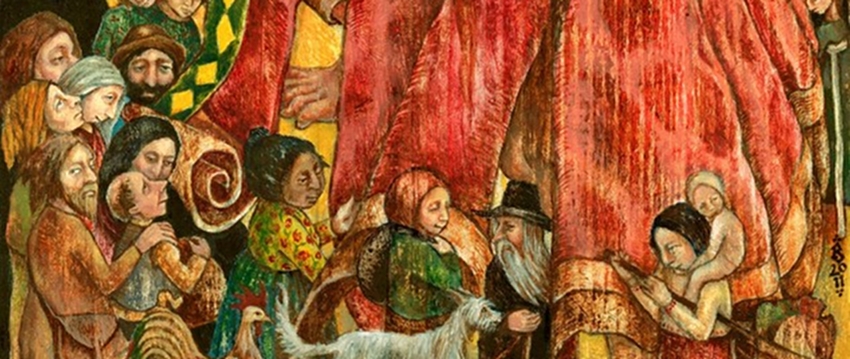
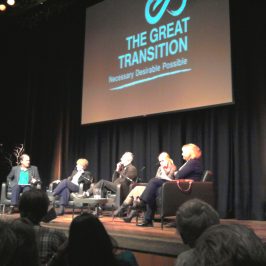

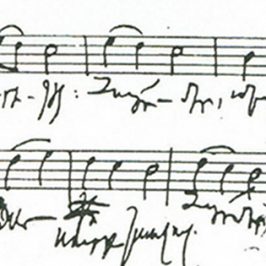
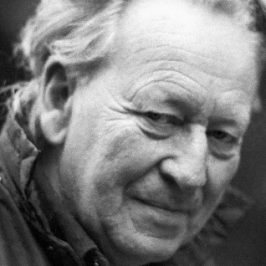
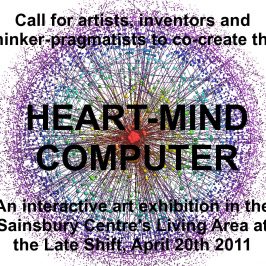
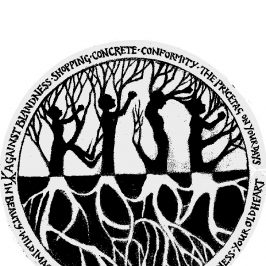
Leave a Reply